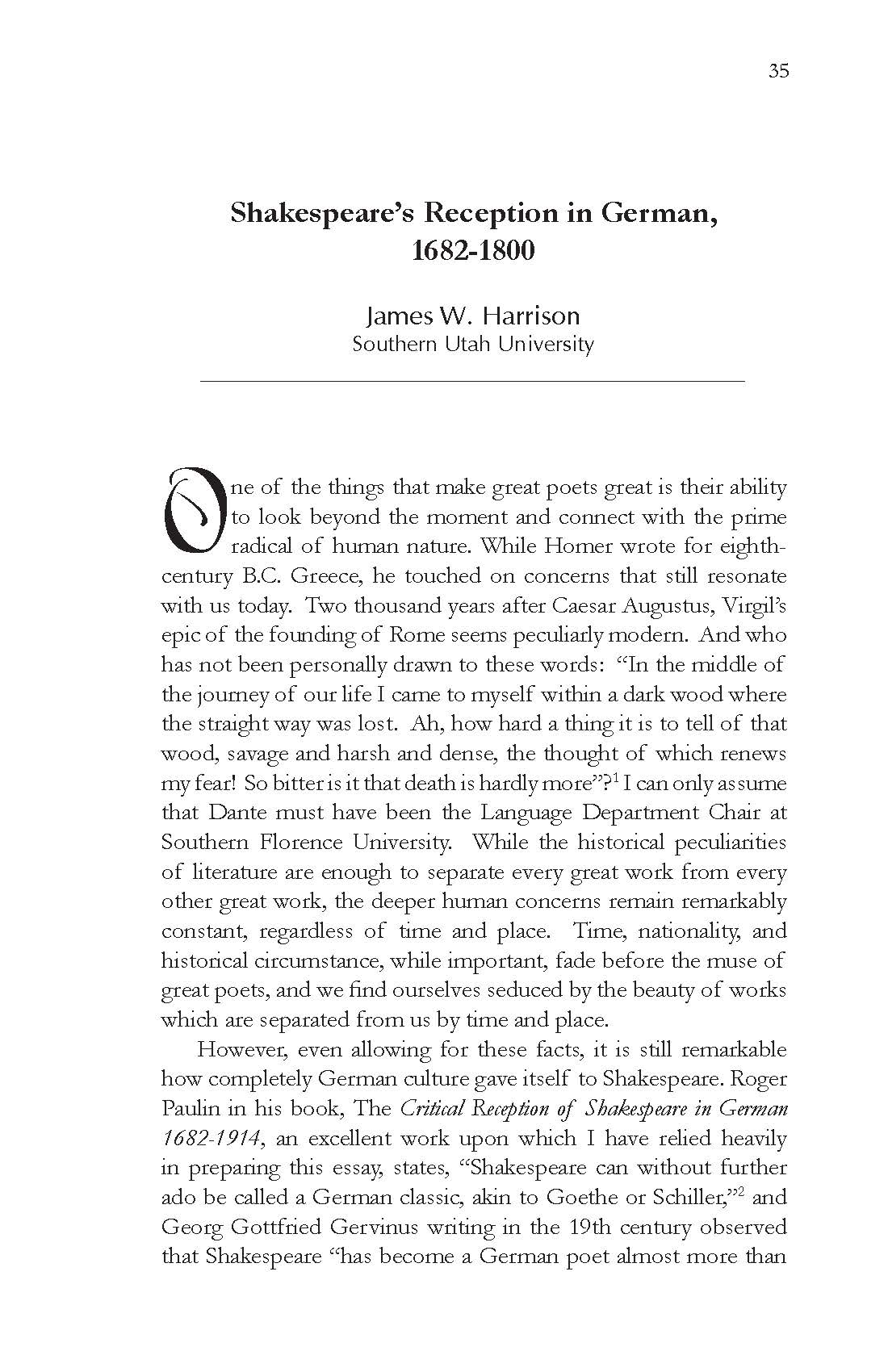Shakespeare’s Reception in German, 1682-1800
Main Article Content
Abstract
One of the things that make great poets great is their ability to look beyond the moment and connect with the prime radical of human nature. While Homer wrote for eighthcentury B.C. Greece, he touched on concerns that still resonate with us today. Two thousand years after Caesar Augustus, Virgil’s epic of the founding of Rome seems peculiarly modern. And who has not been personally drawn to these words: “In the middle of the journey of our life I came to myself within a dark wood where the straight way was lost. Ah, how hard a thing it is to tell of that wood, savage and harsh and dense, the thought of which renews my fear! So bitter is it that death is hardly more”?1 I can only assume that Dante must have been the Language Department Chair at Southern Florence University. While the historical peculiarities of literature are enough to separate every great work from every other great work, the deeper human concerns remain remarkably constant, regardless of time and place. Time, nationality, and historical circumstance, while important, fade before the muse of great poets, and we fi nd ourselves seduced by the beauty of works which are separated from us by time and place.
